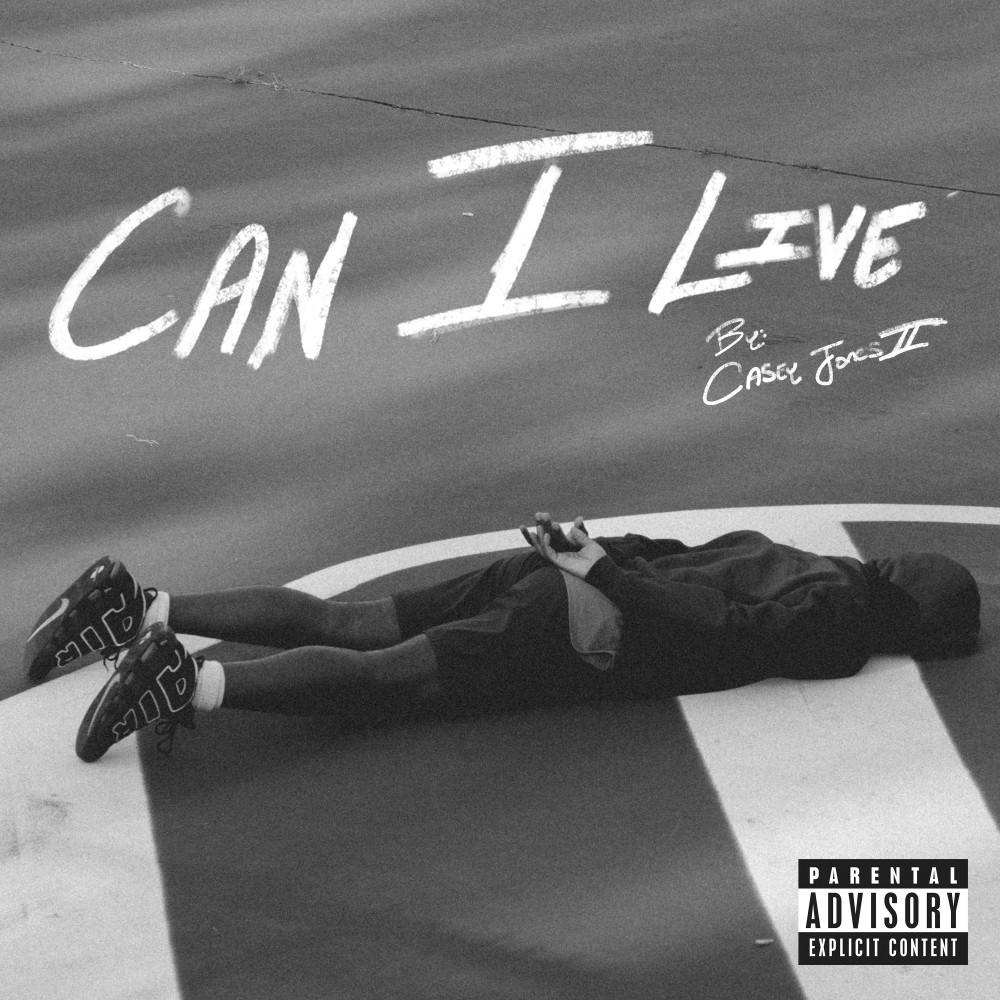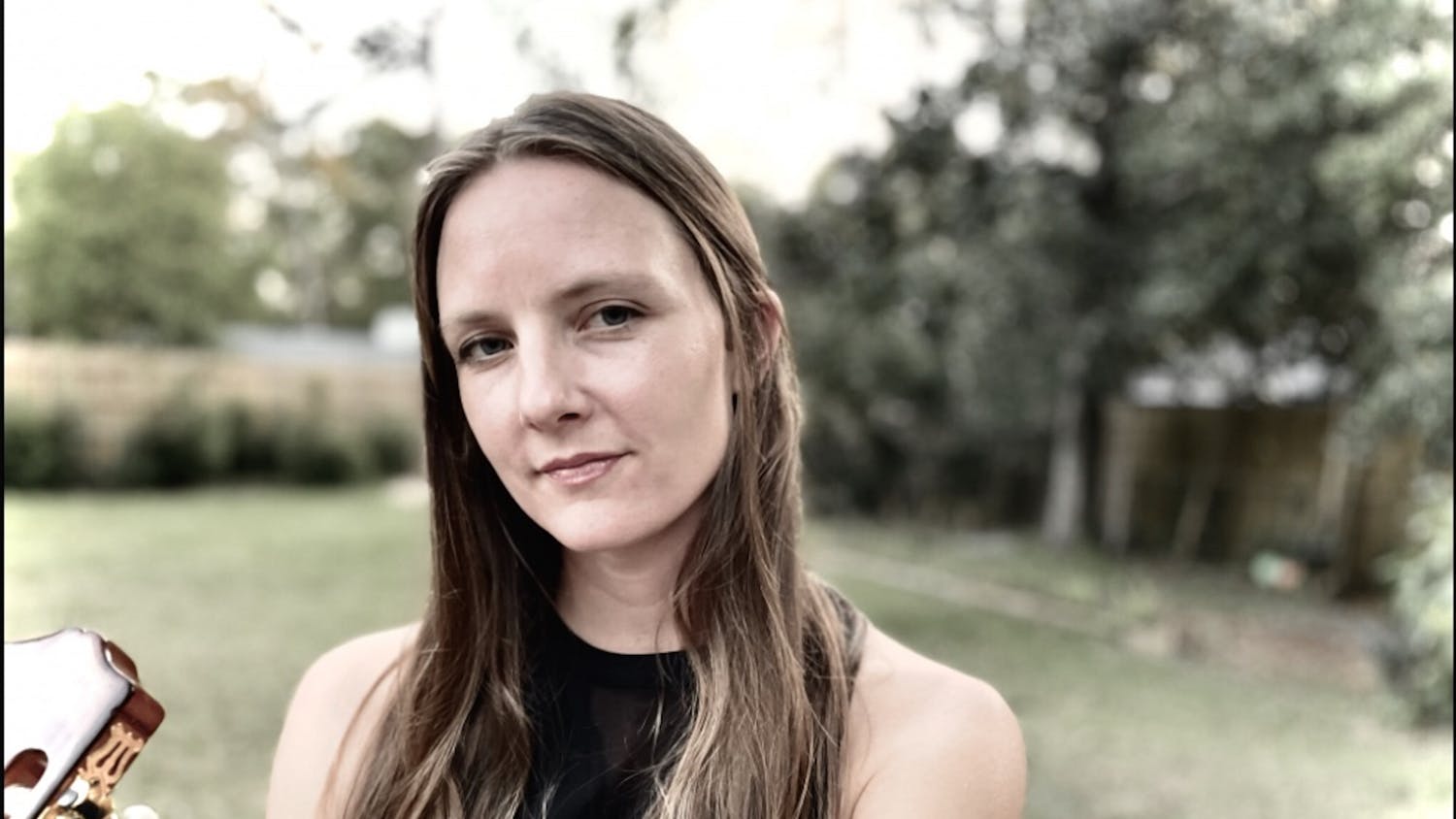Growing up, Casey Jones’ II companions were R&B and gospel. In the car, 2Pac’s bars always rumbled, and the rich harmonies of Kirk Franklin’s songs resonated. Jones’ new single “Can I Live” depicts his roots, but more importantly, his experiences as a Black man.
Jones is signed to the minority-owned record label Dion Dia. From the forgotten community of teenagers in hospitals to prisoners in Alachua County, Dion Dia aims to amplify marginalized voices. The community projects gave patients with chronic illness and people behind bars a mic to voice their struggles and stories. Due to the coronavirus pandemic, both programs were postponed. However, the label still focuses on producing music.
Laila Fakhoury, and Jahi and Khary Khalfani formed Dion Dia at the end of 2018. Jahi and Khary both have talents for marketing and design, and Fakhoury has a passion for service. Music and experiences of oppression tie them together. As people of color, the leaders in the label are attuned to cries of suffering.
Jones’ representative, Fakhoury, a 22-year-old Gainesville native, said the label is a brand with a vision.
“The goal is really to create a synthesis between art and activism and creation and service,” Fakhoury said.
Currently, Jones is the label’s main artist, Fakhoury said. In his sophomore year of high school, Jones told Jahi he wanted to learn how to rap or sing. Then, he scribbled lyrics in class. A year and a half later, Jahi contacted Jones once he initiated the label and asked Jones if he still wanted to make music. From there, Jones recorded his first song with Jahi.
“It was hot garbage but we loved it,” Jones said. “And that's that's how we've been doing this since then, just figuring things out step by step.”
Before “Can I Live,” Jones released “Departure,” “Draft Day” and “Purple” with Dion Dia. Jones freestyled for those songs, so the label doesn’t count them as single releases, Fakhoury said.
Since “Old Casey,” as Jones called it, his cadence and rap voice has evolved. Now, rather than focusing on how the punchlines roll off his tongue, Jones wants to convey a message.
“Can I Live” was recorded and produced in Fakhoury’s home. In a spare room, she has mics, a compressor, monitors and speakers, a focus and computers set up. While her life with the label and outside of it has merged, she said she enjoys being a part of the process.
Together, the team watches movies and eats between recordings. To help clear Casey’s throat, Fakhoury cooked her native Arabic food and homemade soups with lots of spices, she said.
In a collaborative effort, as Jones would rap, the team would offer suggestions. The single “Can I Live” dropped on Juneteenth. In it, he raps about police brutality and the racism he faces. Although he wrote the intro about a year and a half ago, it is still prevalent. When he wrote the song, one of his Black church friends that he grew up with was shot by the police.
“I wasn't as close to him as I used to be, but it still hurt me because it's somebody's life, and it's somebody who I used to know, that’s still way too close to home,” Jones said. “Just watching his mom go through it and watching some of the things that she would talk about with my mom, people wouldn't understand what this lady is going through, and I could never even understand it because that's not my son, that's her son. But I tried to get as close as I could to it. And then write on it from there.”
Through the writing process, he entered a depressing space to channel the pain so many other people go through, he said. According to Jones, the second half of the song that he wrote two months ago is closer to his style now. Late one night, he pounded out the lyrics. In the second half, he also talks about George Floyd, a Black man killed by Minneapolis police officers in May.
With saxophone clips from “U.N.I.T.Y.” by Queen Latifa, Jones said that they represent the mobility in the Black Lives Matter movement. While jazzy, the song embodies resilience.
“This made me think about my future kids. And when the year is 2040 can they even live or are their tomorrows only hollow filled with sorrow hollowtips,” he rapped in the song.
As a Palestinian and Lebanese woman, Fakhoury said although she faces different struggles, the song gave her goosebumps.
“It's always upsetting to hear the struggles that people you really care for go through,” she said. “But, of course, also because it's such a shared experience is what gives it even more of a chilling effect because a lot of people, a lot of specifically Black people and Brown-er people can listen to that and really relate to the experiences of it.”
In the music video, Jones recorded scenes at the Civic Media Center because he said it is representative of the radical ideas he supports. However, he didn’t want to choose settings specific to Gainesville, because Black people face racism everywhere. The video also includes clips of Malcolm X, James Meredith and police brutality.
Soon, Dion Dia will release a project he’s been working on. The project is the length of an album, Fakhoury said, but is more of a mixtape. Throughout it, a tape recorder clicks. The tape recorder sounds in between songs as a transition and when Jones reflects on his father’s experiences and his own.
While a date is not set, the songs are being mixed and mastered. Leading up to the project, Dion Dia will release singles.
For Jones, releasing “Can I Live” was like dropping his kid off to school and anticipating bullying but also love, he said. After its release, he said he received an abundance of support. He said he reminds himself of his worth but also limits his confidence so that his hunger won’t waiver. In the future, he hopes to sustain himself with just music. Until then, he plans to keep creating.
"Can I Live" can be streamed on Spotify and YouTube.
The single "Can I Live," released on Juneteenth, by Casey Jones II ties together the racism he faces and sees in the world around him.

Katie Delk is a sophomore with a journalism major and an anthropology minor. For the Avenue, she writes about music, culture and the environment. When she is not writing, she is outside with the trees, reading a fantasy book or listening to Beach House.





!["Under The Moon," Twin Suns’ debut single, is now available on all streaming platforms. [Courtesy to the Alligator]](https://snworksceo.imgix.net/ufa/4b3c3f55-a229-4997-b302-8d0ab065a6ef.sized-1000x1000.jpeg?w=1500&ar=16%3A9&fit=crop&crop=faces&facepad=3&auto=format)
